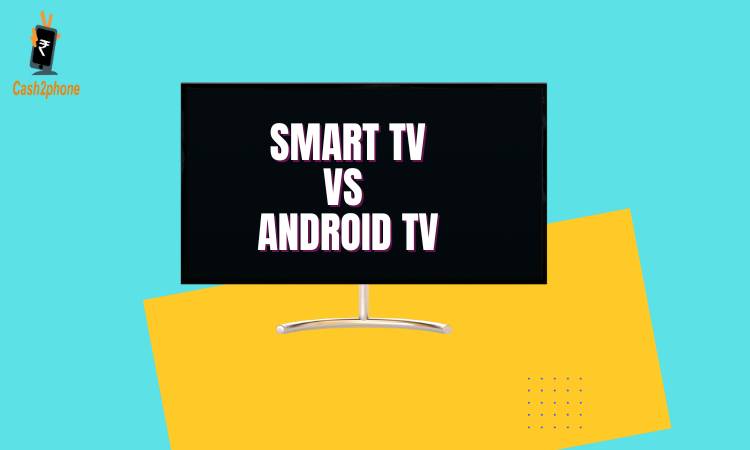With the evolution of technology, choosing a television has become more complex due to the plethora of options available. Among the popular choices are Android TV and Smart TV. Although Android TV and Smart TV share some similarities, they also possess distinct differences that differentiate them from each other. In this article, we will explore the contrasting features and functionalities of Android TV and Smart TV, providing valuable insights to help you make an informed decision when selecting the perfect TV for your home entertainment needs.
Understanding Smart TV
Smart TV is a television that combines traditional TV features with internet connectivity, transforming it into a multifunctional entertainment hub. Smart TVs are equipped with built-in Wi-Fi, enabling users to access a wide array of online content, including streaming services, web browsing, and social media apps. These TVs come with proprietary operating systems developed by respective manufacturers, resulting in varying user interfaces and functionalities. Smart TVs provide convenience and direct access to online entertainment without the need for additional devices.
Unveiling Android TV
Android TV, on the other hand, is a variant of Smart TV that operates on the popular Android operating system, created by Google. It encompasses all the features of a Smart TV while offering additional benefits. Android TV allows users to download and install apps directly from the Google Play Store, expanding the range of available applications beyond what is pre-installed. This includes a diverse selection of apps, such as games, productivity tools, and media streaming services. Android TV provides a consistent user interface across different television brands, ensuring a familiar and seamless experience for users accustomed to Android devices.
How To Convert Your Ordinary TV into a Smart TV
Customization Options
One of the notable differences between Android TV and Smart TV lies in the level of customization options available. Android TV offers users the freedom to personalize their home screens by adding their preferred apps and services. This level of customization enhances convenience and provides quick access to frequently used content. In contrast, Smart TVs may have limitations when it comes to customizing the home screen, as some manufacturers restrict the number of apps that can be added. The extent of customization options may vary based on the brand and operating system of the Smart TV.
Performance and Multitasking Capabilities
In terms of performance, both Android TV and Smart TV offer comparable experiences for general usage. Streaming capabilities, app responsiveness, and overall functionality are similar. However, Android TV has an advantage when it comes to multitasking and running multiple apps simultaneously. The Android TV platform is designed to handle multitasking efficiently, allowing for seamless app switching and smoother performance. Some Smart TVs may struggle with multitasking, leading to potential lag or delays when running multiple apps simultaneously.
Find My Phone : The Ultimate Solution for Tracking and Recovering Your Lost Phone
Compatibility with Other Devices
Both Android TV and Smart TV offer compatibility with external devices such as gaming consoles, Blu-ray players, and soundbars. This compatibility allows users to connect and integrate their TV with other devices for an enhanced entertainment experience. However, Android TV surpasses Smart TV in terms of compatibility with Android devices. Android TV seamlessly integrates with Android smartphones and tablets, enabling content casting and mirroring from mobile devices to the TV screen. This seamless integration provides a connected ecosystem, allowing users to effortlessly enjoy their favorite content across multiple devices.
Software Updates and Support
Another crucial distinction between Android TV and Smart TV lies in software updates and support. Android TV receives regular updates directly from Google, ensuring optimal performance, bug fixes, security patches, and the introduction of new features. This reliable support system enhances the longevity and functionality of Android TV devices. On the other hand, Smart TVs may rely on manufacturer-specific software updates, which can vary in terms of frequency and scope. Users of Smart TVs might experience delays in receiving updates or This content may violate our content policy.This might be limited in terms of the features and improvements offered by the manufacturer. This disparity in software support can impact the overall user experience and longevity of the device.
Voice Control Options
Both Android TV and Smart TV offer voice control features, allowing users to interact with their TVs through voice commands. However, Android TV stands out with its integration of Google Assistant, a powerful voice-controlled virtual assistant. With Google Assistant, users can not only control their TV but also perform a wide range of tasks, such as checking the weather, controlling smart home devices, and getting answers to questions. The advanced voice control capabilities of Android TV elevate the user experience and provide seamless integration with other Google services.
Gaming Capabilities
When it comes to gaming, Android TV takes the lead with its extensive gaming capabilities. Users can access and download a diverse selection of games directly from the Google Play Store, transforming their TV into a gaming console. Some Android TVs even support game controllers, providing a console-like gaming experience. While some Smart TVs may offer basic gaming capabilities, they often lack the extensive game library and dedicated gaming features found in Android TV.
Crush Instagram Crashes on Android with These Simple Fixes
Pricing Considerations
In terms of pricing, Smart TVs generally have a more affordable range compared to Android TVs. This can be attributed to the widespread availability and longer market presence of Smart TVs. Android TVs, with their advanced features and additional benefits, often come at a higher price point. The cost difference depends on factors such as brand reputation, display technology, size, and specific features offered by the TV.
Conclusion
In conclusion, Android TV and Smart TV offer distinct features and functionalities, catering to different consumer needs. Android TV stands out with its ability to download and install apps from the Google Play Store, consistent user interface, extensive customization options, better multitasking capabilities, superior compatibility with Android devices, and regular updates from Google. On the other hand, Smart TVs provide a simpler user interface, affordability, and basic online features. When making a decision, it is important to consider individual preferences, budget, desired features, and long-term software support for an optimal home entertainment experience.
visit www.cash2phone.com for selling your old mobile phone for the best price.



Leave a Reply